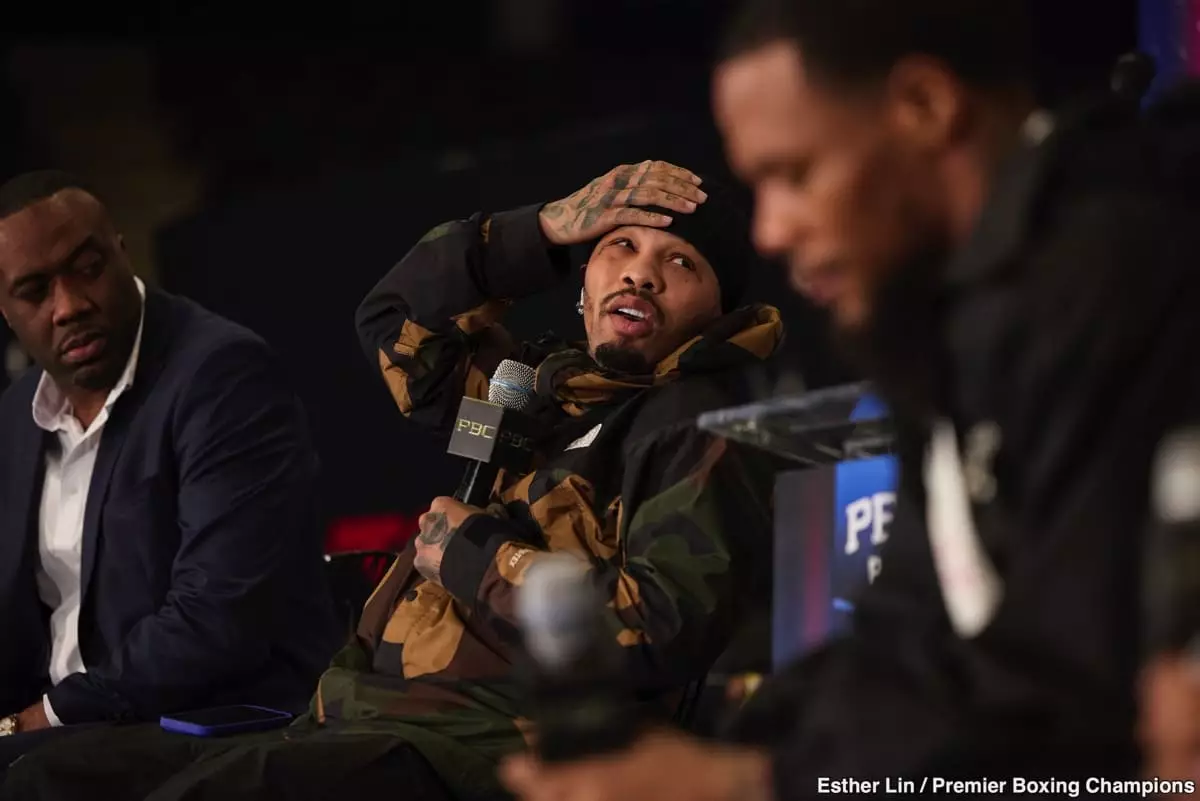Boxing, often glamorized as “the sweet science,” thrives on rivalries, both in and out of the ring. Recently, the Ring Magazine Award show held in London became a focal point for drama, particularly due to Gervonta “Tank” Davis’s outspoken absence and his sharp criticisms directed at Turki Alalshikh, the new owner of Ring Magazine. As stars gathered for one of the sport’s most esteemed events, Davis’s discontent revealed deeper issues within the boxing community that merit investigation.
The conspicuous absence of Gervonta Davis at the prestigious Ring Magazine Award show raised eyebrows. A fighter of his caliber, celebrated for his unblemished record and explosive fighting style, would traditionally be a focal figure at such an event. However, Davis took to social media to express his frustration, claiming he felt slighted due to his exclusion from the invite list. He did not hold back, suggesting that the invited guests were nothing more than sycophants benefiting from Alalshikh. This public outburst seems to stem from a deep-seated feeling of exclusion and resentment, particularly toward other fighters who have chosen to accept lucrative offers to fight in Saudi Arabia.
Davis’s ire primarily focuses on fighters who have made the leap to lucrative bouts overseas, especially in Saudi Arabia. His comments raise an interesting ethical debate in the realm of boxing: can financial success justify moving games to less traditional venues? Boxers often face the ticking clock of their careers; hence, seeking financial security is a pragmatic choice. While many may argue that earning substantial paydays in Saudi Arabia represents a “sell-out” moment, it is also a reflection of the changing landscape of boxing—one that is evolving into a global market.
Despite Davis’s sentiment about maintaining a fight culture rooted in America, the reality is that the financial allure of international venues cannot be ignored. The Saudi market, with its massive payouts, is drawing top talent away from traditional American promotions, causing a seismic shift in where the biggest fights take place. Thus, Davis’s objections may be more about missing out on opportunities rather than an authentic concern for boxing’s integrity.
Another layer to Davis’s remarks is the concern that Turki Alalshikh, as an emerging figure in the boxing landscape, lacks the necessary experience and knowledge about the sport. Davis’s call for accountability stems from a desire to ensure that boxing progresses in a meaningful way, free from what he perceives as corporate greed. However, criticizing others for chasing financial security may seem disingenuous, especially considering that he himself stands to gain significantly from aligning with prominent promoters like Alalshikh.
Davis’s critiques also suggest a competitive jealousy. If Turki indeed wishes to facilitate a high-stakes match between Davis and Shakur Stevenson, why not leverage that opportunity? The tension between a fighter’s pride and the changing business landscape of boxing creates a cluttered narrative—one where Davis appears to be grappling with his place amid burgeoning financial prospects in the sport.
In boxing, as with any sport, successful coexistence often requires collaboration between promoters and fighters. Despite the friction between Davis and Alalshikh, the potential for a matchup with Stevenson could serve as a grounding moment—a chance for Davis to channel his frustrations constructively. A fight of such magnitude could serve not only to satiate Davis’s curiosity about marketability but also reintegrate him into the fold of marquee boxing events.
Instead of disparaging fellow fighters for their financial choices, a more supportive dialogue could emerge. Davis should consider that while current profits may lead fighters to seek overseas opportunities, a united domestic front could foster an environment where fighters and promoters could both thrive.
Gervonta Davis’s public outcry at the Ring Magazine Award show speaks to broader concerns within boxing, revealing issues of inclusion, financial choice, and the evolving nature of fight promotions. As the landscape transforms, so too must the narratives surrounding it. Davis’s responsibilities as a champion not only encompasses his fight record and achievements but also invites him to consider how he engages with the sport’s progression. Ultimately, embracing the changes while holding onto a unified spirit may serve boxing best—turning divisive issues into opportunities for collaboration.

